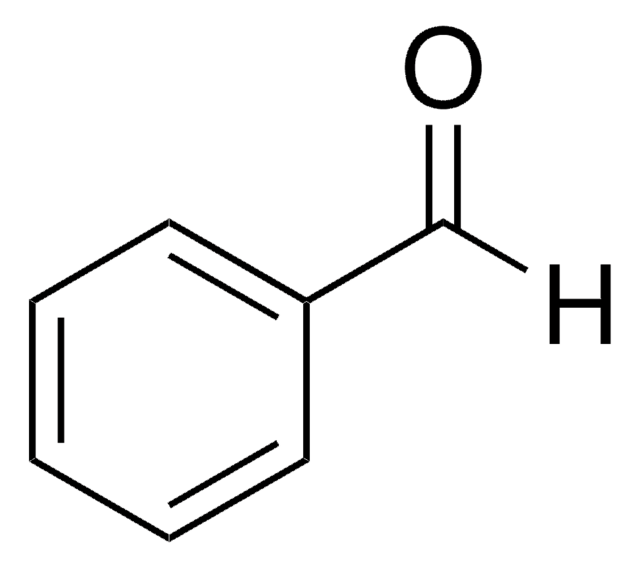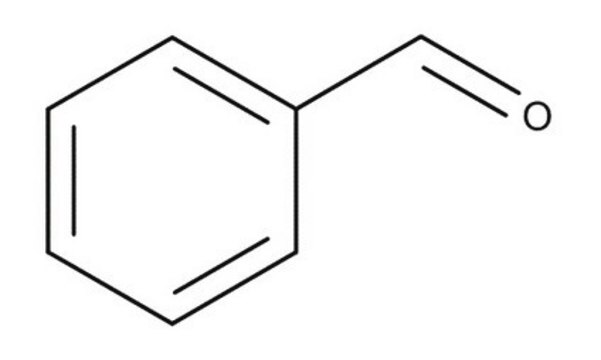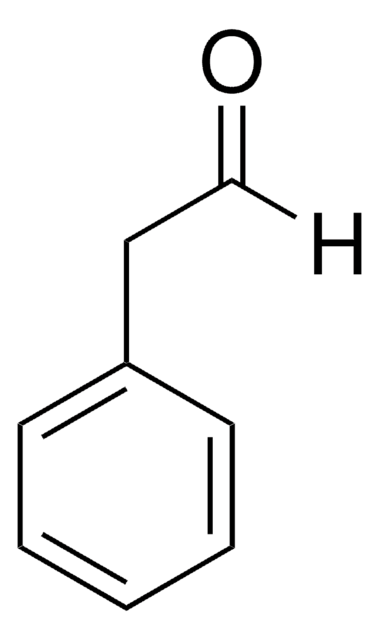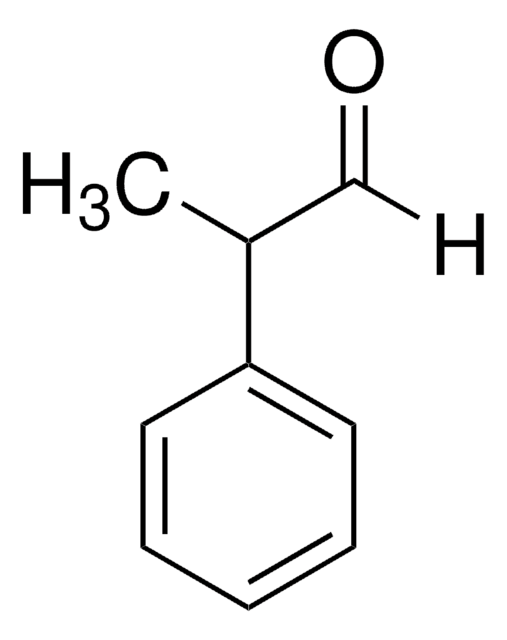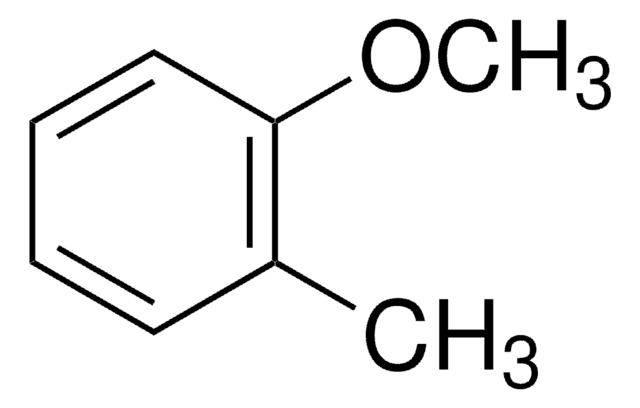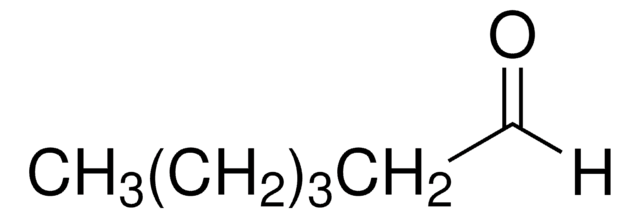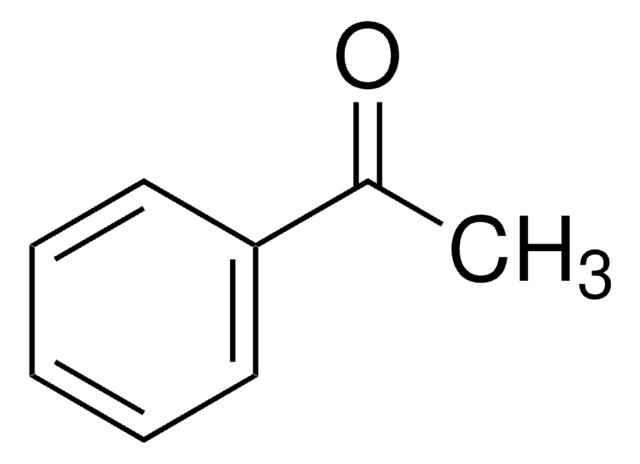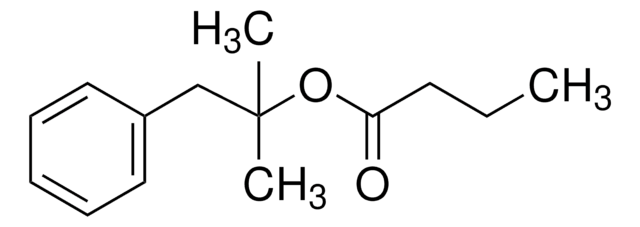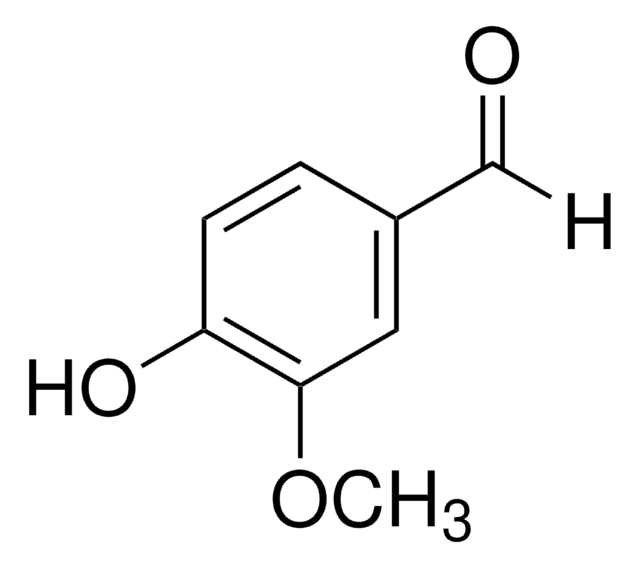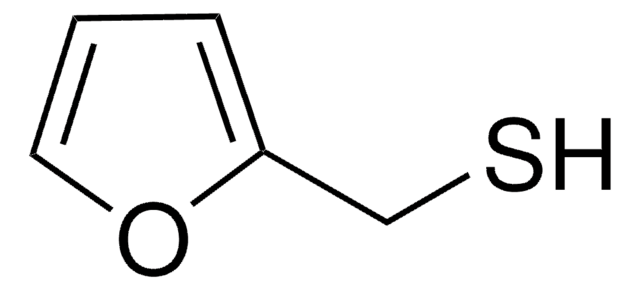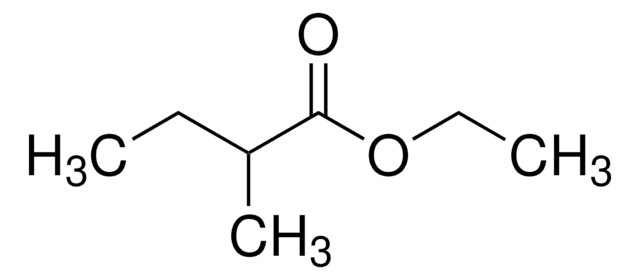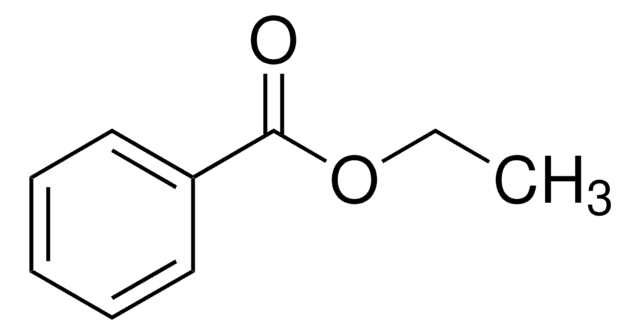W212717
Benzaldehyde
natural, FCC, FG
Synonym(s):
Bitter almond
About This Item
Recommended Products
grade
FG
Fragrance grade
Halal
Kosher
natural
Quality Level
agency
follows IFRA guidelines
meets purity specifications of JECFA
reg. compliance
EU Regulation 1223/2009
EU Regulation 1334/2008 & 178/2002
FCC
FDA 21 CFR 117
vapor density
3.7 (vs air)
vapor pressure
4 mmHg ( 45 °C)
assay
≥98%
form
liquid
autoignition temp.
374 °F
composition
contains IFRA restricted benzaldehyde
expl. lim.
1.4 %, 20 °F
greener alternative product characteristics
Less Hazardous Chemical Syntheses
Use of Renewable Feedstocks
Learn more about the Principles of Green Chemistry.
refractive index
n20/D 1.545 (lit.)
pH
5.9 (20 °C)
bp
178-179 °C (lit.)
mp
−26 °C (lit.)
density
1.044 g/cm3 at 20 °C (lit.)
application(s)
flavors and fragrances
documentation
see Safety & Documentation for available documents
food allergen
no known allergens
fragrance allergen
benzaldehyde
greener alternative category
, Aligned
organoleptic
almond; cherry; sweet
SMILES string
O=Cc1ccccc1
InChI
1S/C7H6O/c8-6-7-4-2-1-3-5-7/h1-6H
InChI key
HUMNYLRZRPPJDN-UHFFFAOYSA-N
Looking for similar products? Visit Product Comparison Guide
Related Categories
General description
signalword
Danger
Hazard Classifications
Acute Tox. 4 Inhalation - Acute Tox. 4 Oral - Aquatic Chronic 2 - Eye Irrit. 2 - Repr. 1B - Skin Irrit. 2 - STOT SE 3
target_organs
Respiratory system
Storage Class
6.1C - Combustible, acute toxic Cat.3 / toxic compounds or compounds which causing chronic effects
wgk_germany
WGK 1
flash_point_f
145.4 °F
flash_point_c
63 °C
ppe
Eyeshields, Faceshields, Gloves, type ABEK (EN14387) respirator filter
Certificates of Analysis (COA)
Search for Certificates of Analysis (COA) by entering the products Lot/Batch Number. Lot and Batch Numbers can be found on a product’s label following the words ‘Lot’ or ‘Batch’.
Already Own This Product?
Find documentation for the products that you have recently purchased in the Document Library.
Customers Also Viewed
Our team of scientists has experience in all areas of research including Life Science, Material Science, Chemical Synthesis, Chromatography, Analytical and many others.
Contact Technical Service